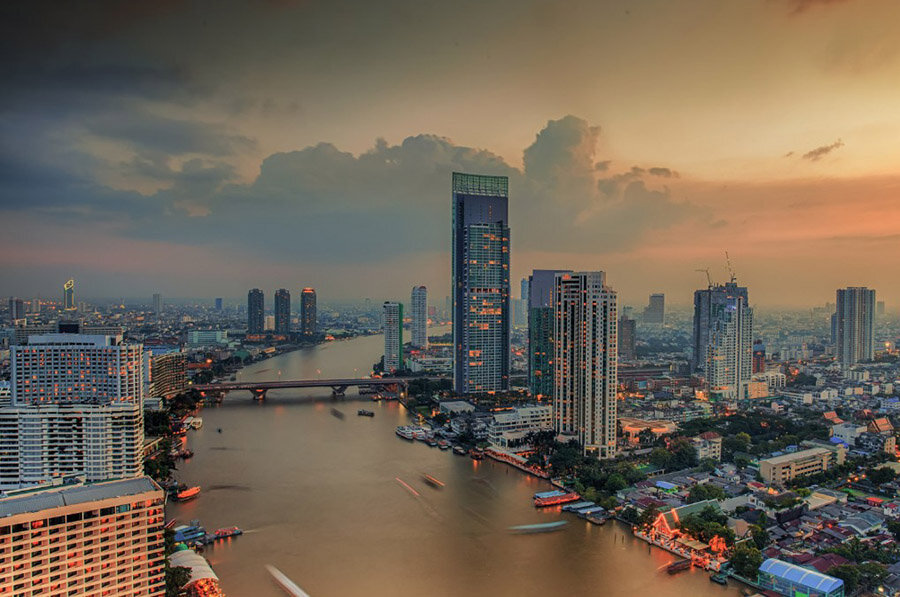Вusiness / Real Estate / Investments / Analytics / Reviews / News / Thailand / Real Estate Thailand 21.05.2025
Investors Buy Earthquake-Damaged Homes in Thailand: An Unexpected Real Estate Trend

As Thailand’s economy slows and demand for new residential projects weakens, the real estate market has seen an unexpected shift. According to Nation Thailand, investors, architects, engineers, and brokers are increasingly purchasing earthquake-damaged secondary properties, renovating them, and reselling them at a profit.
Unlike large developers who are cutting budgets and shifting to the premium segment, smaller investment teams view the crisis as an opportunity. Many focus on foreclosed properties acquired through the Legal Execution Department. Homes with visible cracks or minor structural damage — especially those built after 2007 and compliant with modern seismic codes — are particularly attractive. These properties are structurally sound but sell at a steep discount.
Chayanan Keeratitichanon, CEO of Wealthiness Estate, notes that this strategy offers both low entry cost and high reliability. Renovation is relatively inexpensive, and profits can reach 15%, often outperforming returns on new units. Such units are also easier to rent or resell in a sluggish economy with limited purchasing power.
Secondary Market on the Rise
In 2024, 62% of all property transactions in Thailand were in the secondary market — 217,072 units out of 347,799. New properties accounted for just 38%. Suntorn Sathaporn, President of the Thai Real Estate Business Association, attributes this to lower prices and better locations. Pre-owned homes are on average 20% cheaper and are often located in prime, inaccessible urban alleys where new construction is impossible.
New Condo Sales Decline
According to Colliers Thailand, 5,656 new condo units worth 19.8 billion baht (over $592 million) entered the Bangkok market in Q1 2025 — up 72.1% year-on-year. Yet average pre-sale rates dropped to 37%, compared to the usual 60–70%. Suburban condos performed the worst, struggling to sell even with deep discounts.
As Bangkok Post reports, the March earthquake was a turning point. Buyers became more cautious, focusing on developer reputations and crisis response. Only developers who immediately inspected buildings, enhanced safety, and communicated transparently maintained buyer trust. Colliers predicts Q2 2025 new condo sales could fall below 30% — levels not seen since the pandemic.
Buying, Flipping, and Lease-to-Own
While it's premature to call it a mass trend, the rise of earthquake-affected property investment is notable. Popular models include:
Buy-renovate-resell strategies
Lease-to-own arrangements, especially for buyers without mortgage access
In a credit-constrained market, such flexible models are gaining traction.
Even major developers are entering the space. AP Thailand launched HOMERUN, a PropTech division that buys, renovates, and resells ready-to-move-in properties in central locations — no DIY work required from buyers.
Government Support and Inventory Surge
Government incentives — such as reducing registration and mortgage fees to 0.01% — have encouraged small-scale investors.
According to Pravita Anusiri, President of the Thai Real Estate Broker Association, the market currently holds over 1.4 million unoccupied units, including 800,000–900,000 in the secondary sector. Their combined value exceeds 1 trillion baht, much of which is held by banks and state institutions.
High-Demand Areas and Shifting Focus
The hottest areas for secondary housing include:
- Bangkok
- Samut Prakan
- Chonburi
- Nonthaburi
- Eastern Economic Corridor (EEC)
These regions are also seeing industrial and infrastructure development, boosting demand for centrally located second-hand housing.
Meanwhile, more than 200,000 unsold new properties have accumulated, with up to 4 years needed to clear the stock. As experts put it:
“A property doesn’t have to be new to be valuable — location is everything.”
Подсказки: Thailand, real estate, earthquake, secondary market, Bangkok, condos, PropTech, AP Thailand, HOMERUN, investment, housing crisis, resale property, mortgage, housing inventory, renovation, EEC








